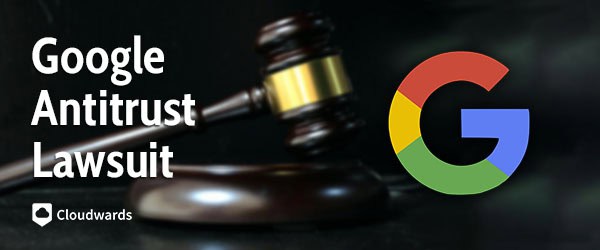Google Escapes Breakup, Faces $20B Reckoning

This Deep Dive was originally sent on September 14th, 2025.
Picture this: You pick up your iPhone one morning, open Safari, and instead of the familiar Google search bar, you’re greeted by… Bing. Or maybe DuckDuckGo. Or some AI-powered search engine you’ve never heard of.
Sounds impossible?
Well, this week a federal judge delivered a landmark antitrust ruling, but one with a surprisingly moderate approach that will gradually reshape competition rather than dramatically restructure the tech giant.
We’re talking about Google, the company that handles over 8 billion searches per day and has become so dominant that “googling” became a verb. The same company that we’ve been tracking as AI competitors circle around its Chrome browser like vultures.
After a five-year legal battle that began in 2020, U.S. District Judge Amit Mehta has delivered his final judgment on how to fix Google’s antitrust violations. Now that the ruling’s out, it feels more like a slap on the wrist than the antitrust reckoning we were hoping for.
Let’s dive into what the judge decided, how we got here, and why this case matters more than any antitrust battle since Microsoft.
Judge Mehta’s Measured Decision: Data Sharing Over Breakup
After months of deliberation, Judge Amit Mehta delivered a surprisingly moderate ruling that avoided the most drastic remedies while still addressing Google’s illegal monopoly. The decision represents a middle ground that acknowledges both antitrust violations and the rapidly changing competitive landscape driven by AI.
What Google Must Do:
- Share search data with competitors, including queries and click information.
- End exclusive contracts for Google Search, Chrome, Assistant, and Gemini apps.
- Allow device makers to pre-load or promote rival search engines alongside Google’s products.
What Google Keeps:
- Chrome browser (no forced sale)
- Android operating system
- Lucrative payment deals with Apple and other partners ($20 billion annually to Apple continues)
- Core integrated business model intact
- Proprietary search algorithms and page ranking systems (keeps the secret sauce, only has to share basic queries and clicks)
The Judge’s Reasoning: Mehta approached the remedies with what he called “humility,” explicitly acknowledging the challenge of regulating a rapidly evolving tech landscape. “Here the court is asked to gaze into a crystal ball and look to the future. Not exactly a judge’s forte,” he wrote.
The judge cited the rise of AI competition as a key factor, noting that companies like OpenAI are “already better placed to compete with Google than any search engine developer has been in decades.” He called a Chrome divestiture “a poor fit for this case.” [1]
- Market Celebration: Investors cheered the decision, sending Alphabet shares up 7.2% in extended trading and Apple shares up 3%. [1] The ruling removes major investor concerns about breaking up Google’s integrated business model while still requiring meaningful changes to increase competition.
- DOJ Response: The Justice Department celebrated the ruling as a victory and is “considering next steps,” according to Assistant Attorney General Gail Slater. He questioned whether “the ordered relief goes far enough.” The government could appeal for stronger remedies or accept the judge’s measured approach.
- Competitive Impact: While avoiding a breakup, the data-sharing requirements pose real competitive risks for Google’s advertising business. As Cantor Fitzgerald analyst Deepak Mathivanan noted, the impact won’t be immediate: “It will take a longer period of time for consumers to also embrace these new experiences.”
Google competitor DuckDuckGo criticized the ruling on X, with CEO Gabriel Weinberg saying it failed to force the changes necessary to address Google’s illegal behaviour.
🔒This is where the free preview ends.
Join thousands of professionals who get the complete story
Our Deep Dive subscribers rely on these investigations to stay ahead of emerging threats and make informed decisions about technology, security, and privacy.
✅ Complete access to this investigation
✅ All future Deep Dive reports
✅ Searchable archive of past investigations
✅ No ads, no sponsored content
✅ Cancel anytime